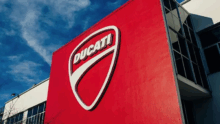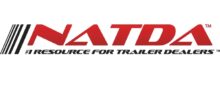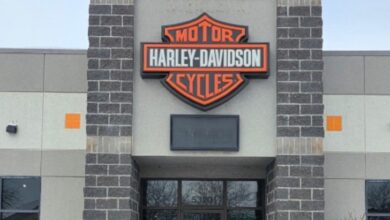Morgan Stanley discusses cash flow and preparing for tax changes
(This article is from the March edition of Powersports Business)
To navigate financial challenges, powersports dealerships must focus on enhancing cash flow, including preparing for potential tax changes in 2025. Effective cash flow management and proactive tax planning can help dealerships preserve their hard-earned dollars and position themselves for future success.

Effective cash flow management begins with a close examination of receivables, which includes accounts receivables, warranty receivables, and contracts in transit. Brad Stanek and Paulina Matel, financial advisors for the Stanek-Haack Group at Morgan Stanley, highlight the importance of “regularly reconciling receivables to ensure timely collection and prevent errors.”
This involves not only monitoring accounts receivable but also processing warranty claims promptly to avoid missing out on critical reimbursements. By addressing these elements diligently, dealerships can improve their cash flow and reduce the risk of financial discrepancies.
OPTIMIZING INVENTORY MANAGEMENT
After the Covid pandemic, we saw firsthand that excessive inventory can tie up cash and increase floor plan costs. Jane Saxon, managing director of CBIZ Somerset, advises that dealerships should “conduct regular audits and ensure physical inventory matches records.”
She also points out that monitoring inventory and your day sale of inventory (DSI) helps prevent carrying aged units at high interest rates. “Implementing cycle counting for parts inventory not only helps manage obsolete items but also reduces theft,” Jane notes. Such practices contribute to better cash flow management by minimizing unnecessary financial strain related to inventory.
EFFICIENT ACCOUNTS PAYABLE MANAGEMENT
Accounts payable management also plays a significant role in cash flow. Timely and efficient payment practices can positively impact cash flow. According to Jane, dealerships should “leverage early payment discounts where available and strategically manage payment terms.”
On the other hand, negotiating extended payment terms with suppliers can provide short-term cash flow relief, while maintaining good relationships with vendors. Jane emphasizes, “keeping a close eye on accounts payable aging reports is essential for optimizing cash flow.” This approach helps dealerships effectively manage their cash outflows and maintain financial stability.
PREPARING FOR TAX CHANGES
As we look to 2025, preparing for potential tax changes is going to be crucial for financial stability. With the sunsetting of the Tax Cuts and Jobs Act (TCJA) and new tax regulations potentially on the horizon, it is important for dealerships to stay informed about legislative updates that could affect their financial planning, including the top marginal tax rate increasing from 37% to 39.6%, and the elimination of the Qualified Business Income (QBI) deduction.
Brad underscores the importance of “proactive tax planning to understand and anticipate how changes may impact dealership operations.”
Consulting with tax professionals and utilizing available resources can help dealerships make informed decisions and adapt their strategies. Paulina emphasizes, “Staying informed of potential changes is key to effective financial planning.”
CONCLUSION
In the face of current financial pressures, dealerships must adopt a strategic approach to managing cash flow and preparing for tax changes. By focusing on effective receivables management, optimizing inventory and accounts payable, and staying informed about tax regulations, dealerships can navigate these challenges and position themselves for future success. Proactive financial management not only preserves cash but also strengthens the overall resilience of the dealership.
Ultimately, dealers must prioritize exit planning to protect their legacy, secure their financial future, and ensure the continued success of their dealership and their personal financial wellbeing. With the right approach, dealers can navigate the uncertainties of exit planning and achieve a favorable outcome that aligns with their personal and financial goals.
The Stanek-Haack team offers a complimentary service, the Second Opinion Service, which is a 360−degree review of your dealership and personal financial situation. This service allows you to dive deeper with no cost or obligation.
Brad Stanek, Financial Advisor, can be reached at brad.stanek@ms.com. Paulina Matel, Financial Advisor, can be reached at paulina.matel@ms.com.








